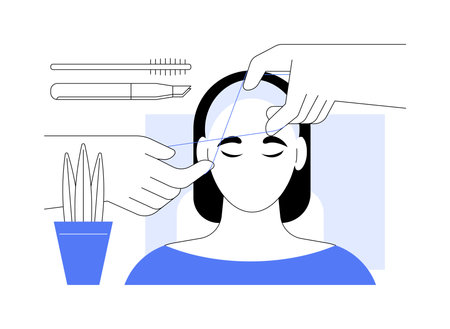Introduction to Sleep Deprivation in the UK
Sleep deprivation among children and teenagers has become an increasingly pressing concern across the United Kingdom. Recent studies show that a significant number of young people are not getting the recommended amount of sleep, leading to worries about both immediate and long-term effects on their wellbeing. The issue is multifaceted, with several contributing factors such as academic pressures, increased screen time, extracurricular commitments, and lifestyle changes brought about by modern technology and social trends. Parents across England, Scotland, Wales, and Northern Ireland report similar challenges as they try to ensure their children maintain healthy sleep routines. This growing problem is now recognised as a public health concern by both the NHS and educational authorities, who warn that chronic lack of sleep can have serious consequences for physical health, mental wellbeing, and academic performance. Below is a summary table outlining some of the most common causes of sleep deprivation among UK youth:
| Cause | Description |
|---|---|
| Screen Time | Increased use of smartphones, tablets, and gaming consoles before bedtime disrupts natural sleep cycles. |
| Academic Pressure | Heavy homework loads and exam stress often lead to later bedtimes. |
| Extracurricular Activities | Busy schedules with after-school clubs or sports reduce time available for rest. |
| Poor Sleep Hygiene | Lack of consistent bedtime routines and unsuitable sleeping environments. |
| Mental Health Challenges | Anxiety or low mood can make it harder to fall or stay asleep. |
This overview sets the stage for understanding why addressing sleep deprivation is so important for families across the UK, highlighting the urgent need for awareness and practical solutions tailored to British households.
2. Recognising Signs of Sleep Deprivation
Spotting the early warning signs of sleep deprivation in children can be challenging, especially as symptoms often overlap with other common childhood behaviours. However, UK parents play a vital role in safeguarding their childrens wellbeing by staying alert to both behavioural and physical cues that signal a lack of adequate rest. By identifying these signs early on, you can take proactive steps to address sleep issues before they impact long-term health and development.
Behavioural Signs Parents Should Watch For
Children who arent getting enough sleep may not always appear overtired—instead, they might display increased irritability, difficulty concentrating at school, or heightened emotional sensitivity. In some cases, tired children become unusually hyperactive or impulsive, which can easily be mistaken for naughtiness or attention deficit issues. If your child is consistently struggling with mood swings or finding it hard to manage their emotions, inadequate sleep could be a contributing factor.
Physical Symptoms Linked to Poor Sleep
Lack of sleep also takes a toll on childrens physical health. You might notice frequent yawning, rubbing of the eyes, or slower reaction times. Some children experience headaches or a weakened immune system, making them more susceptible to common bugs going around at school. Persistent complaints about feeling tired during the day should always prompt a closer look at your childs bedtime routine and overall sleep quality.
Common Indicators of Sleep Deprivation in Children
| Behavioural Signs | Physical Symptoms |
|---|---|
| Irritability and moodiness | Frequent yawning |
| Poor concentration at school | Rubbing eyes or face |
| Hyperactivity or impulsiveness | Headaches |
| Increased forgetfulness | Difficulty waking up in the morning |
| Trouble managing emotions | Tiredness throughout the day |
Practical Guidance for UK Parents
If you notice these signs consistently, consider keeping a simple sleep diary for your child—recording bedtime, wake time, and any night-time disturbances. This will help you spot patterns and discuss concerns with your GP if needed. Remember, every child is different, but recognising when something is amiss gives you the best chance to support your childs wellbeing through healthy sleep habits.

3. Long-Term Effects on Physical and Mental Wellbeing
Chronic sleep deprivation is a pressing concern for UK parents, with consequences that extend far beyond tiredness and irritability. Over time, insufficient sleep can significantly impact both physical and mental health, as well as children’s academic performance and growth. Understanding these risks is essential for safeguarding your child’s future wellbeing.
Mental Health Risks
Lack of consistent, quality sleep increases the likelihood of mood disorders such as anxiety and depression among young people. Prolonged sleep deprivation disrupts the balance of brain chemicals responsible for emotional regulation, making it harder for children to manage stress or form healthy relationships. This can manifest as frequent mood swings, heightened emotional sensitivity, or withdrawal from social activities.
Impact on Academic Performance
Children who do not get enough sleep often struggle to concentrate in class, retain information, or complete tasks efficiently. Chronic tiredness can lead to lower grades, reduced participation in classroom activities, and even absenteeism. The table below highlights some key differences between well-rested and sleep-deprived students:
| Aspect | Well-Rested Student | Sleep-Deprived Student |
|---|---|---|
| Attention Span | Focused and alert | Easily distracted, inattentive |
| Memory Retention | Strong recall abilities | Poor memory retention |
| Mood Stability | Emotionally balanced | Irritable, anxious |
Physical Growth and Development
The body carries out vital restorative processes during deep sleep stages, including tissue repair and the release of growth hormones. Persistent lack of sleep can hinder normal physical development in children and adolescents—potentially leading to delayed puberty or weakened immune systems. It may also increase the risk of obesity and related health conditions later in life.
Key Takeaway for UK Parents
The cumulative effects of chronic sleep deprivation are not limited to one area of a child’s life—they have wide-ranging implications for health, learning ability, and overall happiness. By understanding these risks, UK parents can take practical steps to promote better sleep habits and safeguard their child’s long-term wellbeing.
4. Cultural and Societal Factors Affecting Sleep in Britain
In the UK, children’s sleep patterns are shaped by a combination of cultural traditions, school timetables, and modern lifestyle habits. Many parents may not realise how these uniquely British factors can contribute to sleep deprivation and impact their child’s wellbeing in the long term.
British Lifestyle Influences on Children’s Sleep
The daily routines in British households often revolve around early school start times and after-school activities, leaving little room for adequate rest. Additionally, exposure to screens in the evening—whether from homework on laptops, gaming consoles, or family TV time—can significantly delay bedtime. Traditional “tea time” (the evening meal) often occurs later compared to other countries, sometimes pushing back the entire nighttime routine.
Key Contributors to Poor Sleep Patterns
| Factor | Description | Impact on Sleep |
|---|---|---|
| School Schedules | Early morning start times and packed timetables | Reduces total sleep duration; increases morning fatigue |
| After-School Commitments | Clubs, sports, and tutoring sessions running into the evening | Delays bedtime; disrupts consistent sleep schedules |
| Screen Time | Use of devices for homework and leisure late into the night | Suppresses melatonin production; leads to difficulties falling asleep |
| Cultural Mealtime Habits | Late dinners or “tea time” traditions | Pushes bedtime routines later; affects sleep quality |
| Lack of Outdoor Activity | Poor weather or urban living limiting outdoor play | Reduces physical tiredness needed for restful sleep |
What UK Parents Can Do:
- Establish Consistent Routines: Aim for regular bedtimes, even on weekends, to align with children’s natural body clocks.
- Monitor Screen Exposure: Set boundaries for device use in the hour before bed—consider a family “digital curfew.”
- Pace After-School Activities: Prioritise rest and downtime over overscheduling to support mental health and better sleep.
- Create a Wind-Down Ritual: Encourage reading or quiet conversation after dinner rather than stimulating activities.
- Promote Daylight Exposure: Whenever possible, encourage outdoor activities after school—even brief walks help reset circadian rhythms.
The pressures of modern British life make it all too easy to overlook sleep as a health priority. By understanding how local habits and routines affect rest, parents can take practical steps to ensure their children get the sleep they need for long-term wellbeing.
5. Practical Advice for Encouraging Healthy Sleep Habits
Helping your child develop healthy sleep habits is essential for their long-term wellbeing, especially given the growing evidence of the serious effects of sleep deprivation. Here are some practical, research-backed tips specifically tailored for UK parents:
Establish a Consistent Bedtime Routine
Consistency is key. Having a set bedtime and wake-up time—even on weekends—helps regulate your child’s body clock. This regularity makes it easier for them to fall asleep and wake up naturally.
Bedtime Routine Checklist
| Step | Example |
|---|---|
| Wind-down Activity | Reading a book or listening to calm music |
| Avoid Screens | No TV, tablets, or phones at least 1 hour before bed |
| Personal Hygiene | Brushing teeth and washing face |
| Comfort Object (if needed) | Teddy bear or favourite blanket for younger children |
Create a Sleep-Friendly Environment
- Ensure the bedroom is dark, quiet, and cool (16-20°C is recommended by the NHS).
- Use blackout curtains if early sunrise or street lights are an issue.
- Limit noise with soft furnishings and consider white noise machines if necessary.
Encourage Daytime Physical Activity
Regular exercise during the day helps children fall asleep more easily at night. Encourage outdoor play in local parks or walking to school where possible, aligning with British lifestyle and weather considerations.
Mind What They Eat and Drink
- Avoid caffeinated drinks like cola or tea after lunchtime.
- Offer a light, healthy snack before bed if your child is hungry—options include a banana or wholemeal toast.
Promote Open Conversations About Sleep
If your child struggles with worries or anxieties, especially around exam times like SATs or GCSEs, encourage them to talk about their feelings. Consider relaxation techniques such as mindfulness, which are increasingly being taught in UK schools.
When to Seek Professional Help
If you notice persistent sleep problems despite following these steps, consult your GP or health visitor. They can guide you towards additional support services such as NHS sleep clinics or CAMHS (Child and Adolescent Mental Health Services).
6. Seeking Support: When and Where to Get Help
Persistent sleep issues can be overwhelming for both children and parents, but you are not alone. There are numerous UK-based resources, organisations, and NHS services designed to provide support, guidance, and practical solutions for families struggling with sleep deprivation. Recognising when to seek help is crucial—if your child’s sleep problems persist for more than a few weeks, or if they begin to affect family wellbeing, it may be time to reach out.
Understanding When to Seek Help
While occasional sleepless nights are common in parenting, ongoing sleep deprivation can signal an underlying issue. You should consider seeking professional advice if:
- Your child consistently struggles to fall asleep or stay asleep
- Night-time disturbances are affecting your child’s mood, behaviour, or school performance
- You notice signs of anxiety or depression linked to poor sleep
- The lack of sleep is impacting your own mental health or relationships
Key UK Resources for Sleep Support
The following table highlights some trusted sources of information and assistance available across the UK:
| Resource/Organisation | Description | How to Access |
|---|---|---|
| NHS Sleep Advice | Official guidance on childhood sleep issues, routines, and when to seek medical help. | NHS website |
| The Sleep Charity | Offers expert advice, free resources, and helplines for parents and young people. | The Sleep Charity website |
| ERIC (The Children’s Bowel & Bladder Charity) | Specialist support for night-time wetting and related sleep disruptions. | ERIC website |
| MindEd for Families | Mental health support resources including advice on sleep and emotional wellbeing. | MindEd website |
| Your GP or Health Visitor | Personalised medical advice and referrals to paediatric sleep clinics if needed. | Contact through your local NHS surgery or health visiting team. |
NHS Guidance and Pathways for Families
The NHS recommends starting with self-help strategies such as consistent bedtime routines, limiting screen time before bed, and creating a calm sleeping environment. If these measures do not lead to improvement, your GP can assess for potential underlying causes such as anxiety, ADHD, or physical health issues. In some cases, referral to a specialist paediatric sleep clinic may be appropriate.
What Parents Can Expect from Professional Support
- An assessment of your child’s sleep patterns and overall wellbeing
- Bespoke advice tailored to your family’s needs and circumstances
- Access to behavioural therapies or medical interventions if required
- Follow-up care and ongoing support where necessary
Your Child’s Wellbeing Comes First
No parent should feel isolated in dealing with persistent sleep difficulties. Reaching out for help is a proactive step towards improving the health and happiness of your whole family. Use the resources above to access reliable support—and remember that effective solutions are within reach for every UK family facing sleep challenges.


